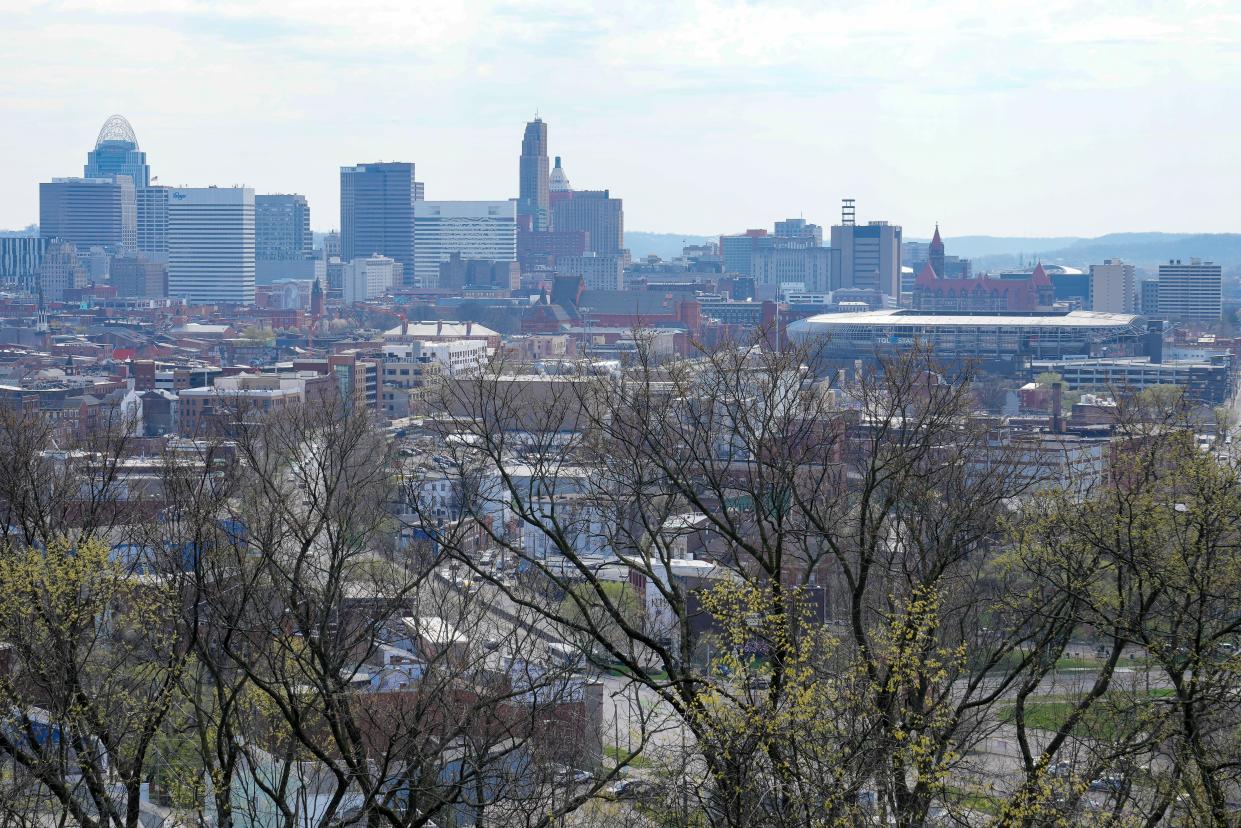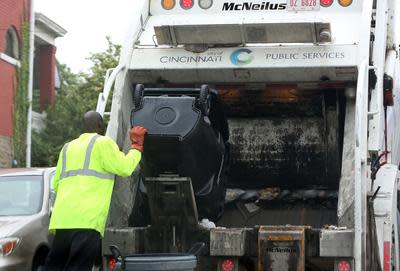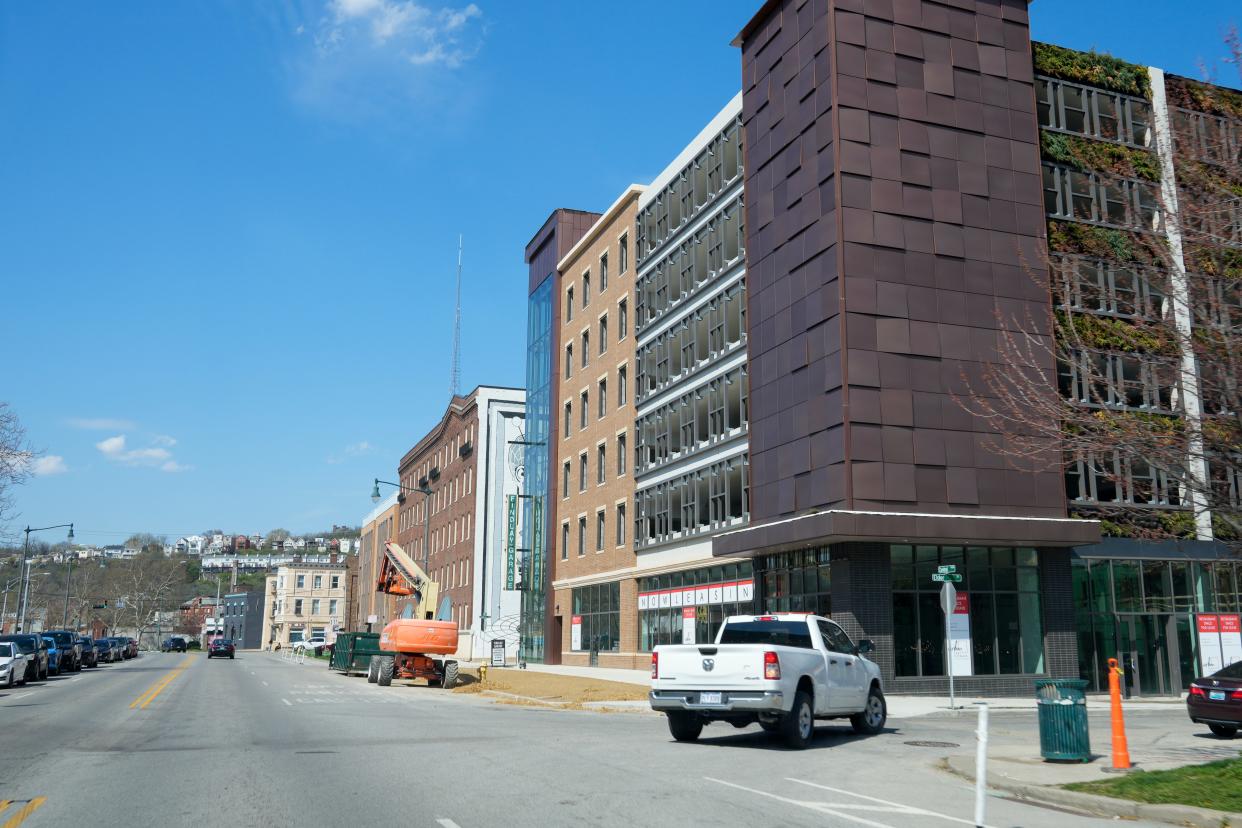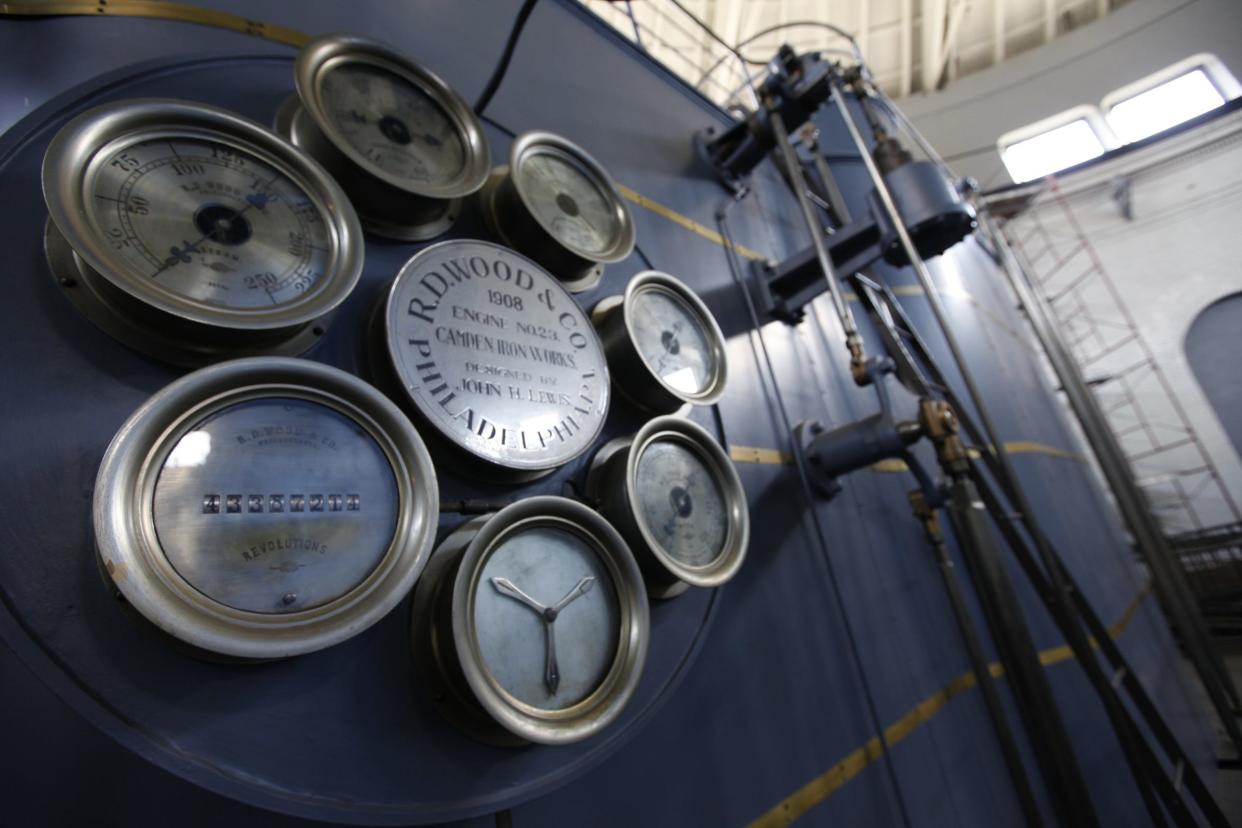Cincinnati Futures Commission: Raise taxes, sell golf courses, impose trash fee
A high-profile commission tasked with charting the future for Cincinnati's leaders recommended the city regionalize its water system, write more parking tickets, turn two parks over to the county, lease out Lunken Airport and sell its public golf courses.
The report released Thursday also recommended raising the city's earnings tax by 0.15 percentage points, with the increase dedicated to spurring economic growth and boosting public safety. The earnings tax would go from 1.8% to 1.95%, which would still be lower than Columbus or Cleveland.

It also recommends the city impose a trash fee of up to $15.30 a month, an idea voters rejected in a 2011 referendum.
Cincinnati Mayor Aftab Pureval convened the commission in October 2022, tapping Procter & Gamble CEO Jon Moeller to lead it.
Read it: Cincinnati Futures Commmission report
'Relatively small sacrifices to move this city forward'
Moeller told The Enquirer not all commission members agreed on every point, but they all signed off on the entirety of the report. He said he hoped the public will "embrace the relatively small sacrifices to move this city forward."
"The fees are fairly modest and the benefits are significant," Moeller said. "With this, there is the assurance of police and fire support, continued services, highly rated waste management, improvements to infrastructure, the well-being of city employees, all which make the city a stronger place."
"Growth is not inevitable," he said. "It must be intentional."
The report offered recommendations in three areas: fixing the budget, investing in growth and addressing long-term structural changes.
Here are highlights from the report.
Recommendations for fixing the budget

Impose a trash fee. The commission found Cincinnati is one of the only major cities in Ohio that does not impose a trash collection fee and recommended a fixed monthly fee of $15.30 per household, or $7.60 a month for low-income residents. This would bring in $164 million over 10 years and would require a charter change. In 2009 city administrators suggested charging $20 a month for garbage collection as a way to help cover a deficit in the city budget. Council never imposed the fee, but citizens rebelled and passed a charter amendment that prevented the city from imposing trash fees.
Impose a 0.05% public safety earnings tax for police and fire services. This would require a charter change, as all earnings tax increases do.
Sell or lease city assets: selling golf courses; leasing Lunken Airport to the Cincinnati/Northern Kentucky International Airport; and selling parking garages.
Turn over French Park in Amberley Village and Mount Airy Forest to Great Parks of Hamilton County, which is estimated to save $9.5 million. Commission leaders did not ask Great Parks if it would be interested.
Seek additional revenues by reforming ambulance bill collections (estimated to bring in $18 million in revenue), increasing parking enforcement (estimated to bring in $10 million in revenues) and capturing a 3% ticket tax on the resale of tickets in Cincinnati, which is permitted, but has not been done in the past. City administrators already are working on reforming the billing process and the ticket tax issue.
The Cincinnati Parks Department and Cincinnati Recreation Commission should create more shared services, which the commission estimated would produce $25 million in savings. In the past, leaders have discussed merging the two departments, which other cities have done, but the commission stopped short of making that recommendation.
Recommendations for investing in growth

Impose a 0.1% earnings tax to create development funds. Like the public safety earnings tax, this would require a charter change.
Create an office of strategic growth in the City Manager's Office. The city has a development department, but this would be a separate office under the city manager where "highly experienced" development professionals would coordinate residential and commercial development. This office would be held accountable for growth goals.
Use $240 million from the sale of assets and the 0.10% earnings tax to create four funds the commission says would spur growth. The recommendations would allocate $100 million for a "site-ready" fund overseen by The Port, $100 million for the Affordable Housing Trust Fund, $50 million for neighborhood growth and $25 million for minority-owned business grants.
Recommendations for long-term fixes

Turn the pension system over the state. The city pension system is estimated to have a $20 million to $30 million annual deficit over 20 years. The commission found the best way to rightsize the pension is to divest of Greater Cincinnati Water Works by creating a regional water district. This could save up to $35 million a year. The commission left the details up to the city. The water system now provides water to the entire region. However, since it's city-owned, Cincinnati residents pay lower rates. Those rates are set by elected officials. Neither would likely be the case under a regional water system, which would likely be governed by an oversight board and charge every government the same amount. City leaders suggested selling the water district in 2009, prompting a ballot initiative to pass that required a public vote before the sale or transfer of assets. So this, too, would require a charter amendment.
Address deferred maintenance. The commission had been looking at this issue, but determined the the sale of the railroad adequately addresses the issue. When selling the railroad, citizens were promised the money would be spent in addition to, not as a replacement funds, for the estimated $400 million in deferred maintenance.
End the Smale Commission requirement that 0.1% of the earnings tax be used to repair infrastructure. The commission recommended the money be redirected to the general fund but in a way that does not add to the city's deferred maintenance bill.
The report is silent on the topic of a consolidated metro government, which has been adopted in Indianapolis and Nashville.
The recommendations did come with an ultimatum to City Hall: Make the cuts or the business community won't support increasing the earnings tax.
Windfall from the railroad sale
The recommendations come five months after the passage of Issue 22, the referendum to sell the Cincinnati Southern Railway to Norfolk Southern for $1.6 billion. In a television commercial urging voters to back the railroad sale, Pureval said the sale would prevent future tax increases. The sale passed with 52% of the vote in November 2023, backed by the priciest campaign in city history, $6 million.
The money from the sale was used to create a trust. Investment income from the fund − up to $80 million a year by the mayor's estimate − is intended to be used to address a backlog of infrastructure repairs.
The report also comes in the wake of a corruption scandal that rocked City Hall, in which three council members were arrested in 2020 and later convicted on federal corruption charges. Since then, citizens elected a new mayor in 2021 and the first all-Democratic Cincinnati City Council. last year
Modeled after the Smale commission
Pureval created the Cincinnati Futures Commission in 2022 as a modern-day Smale Commission.
In 1986, Mayor Charlie Luken asked P&G Chairman John G. Smale to head the Cincinnati Infrastructure Commission, which became known as the Smale Commission, to find a solution to the city’s crumbling infrastructure due to decades of deferred maintenance.
The following year, the 10-member commission of business leaders made 100 recommendations that cost the city $217.3 million over five years, plus $29.8 million annually for continued maintenance. Voters narrowly approved the plan, 50.2% to 49.7%.
Two problems: The school system and 'untenable disparities'
The commission report said it was clear from resident and stakeholder conversations that the perception of Cincinnati Public Schools limits the city's ability to grow.
Residents seeking better education options are choosing to leave the city or seek out private schools. "The current state of CPS presents challenges to growth," the commission said. It recommends the community engage in analysis and "reform efforts," which include an emphasis on student outcomes.
The report also noted that while Cincinnati is a diverse community with 40% of residents identifying as Black, Cincinnati is not as diverse when compared to peer communities.
What happens now?
The Cincinnati Futures Commission dissolves Thursday at noon. After that, what happens will be up to Pureval, City Manager Sheryl Long and Cincinnati City Council.
Nearly all the ideas would face public scrutiny. Most would need Cincinnati City Council approval. And some − including the earnings tax increases and creating a regional water utility − would require a public vote.
Pureval saw the Cincinnati Futures Commission report for the first time Wednesday. It's unclear if there is a plan to present the report to the public. The commission's work cost $2 million, of which $1 million was paid by the city and the balance paid by the business and civic communities. The commission hired EY for financial analysis and benchmarking against other cities. A portion was spent to hire Cincinnati-based Cohear, a community engagement and strategy company, to engage with citizens. More than 800 citizens offered input, according to the report.
This article originally appeared on Cincinnati Enquirer: Cincinati Futures Commission recommends selling assets, raising taxes
